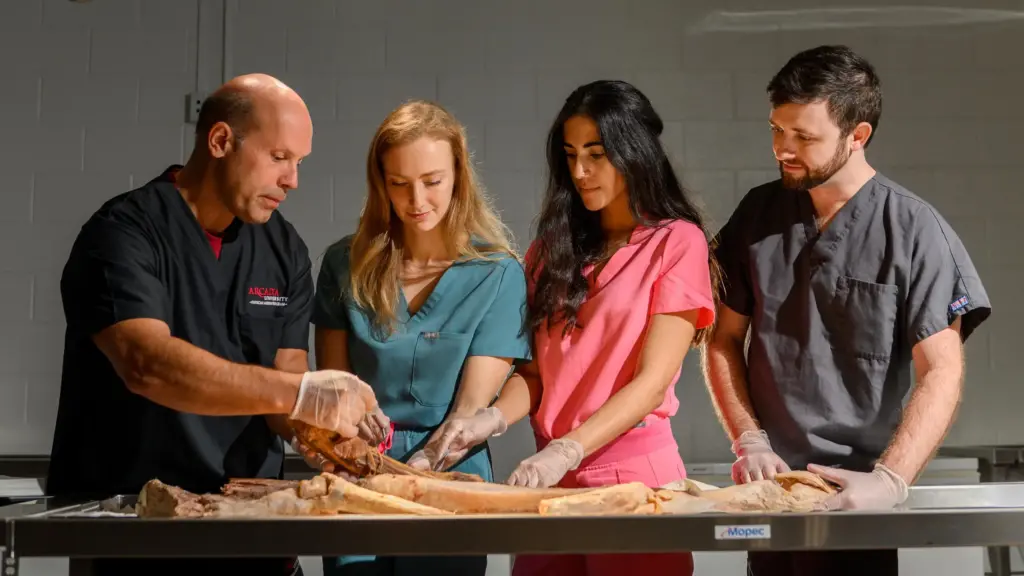Overview
- Degree Level
- Undergraduate
- Degrees Offered
- Bachelor of Science
- school/college
- College of Arts and Sciences

This is an Arcadia University undergraduate pathway that is specially designed to prepare students to apply to the Arcadia University Master of Medical Science (Physician Assistant) program.
The Master of Medical Science (Physician Assistant) degree is designed to produce graduates who will be well equipped to deliver high- quality, cost-effective health care in a wide variety of settings, including hospitals, clinics, outpatient offices and community settings. The physician assistant is trained to take medical histories, perform physical examinations, order and interpret diagnostic tests, diagnose, and treat illness, determine treatment, and educate patients regarding their health and medical concerns.
The Pre-Physician Assistant program pathway is four years of undergraduate study that prepares students to apply to the two year graduate Physician Assistant program. A student interested in becoming part of the Physician Assistant program must first earn a bachelor’s degree in a major such as Biology, Chemistry, Public Health, Healthcare Administration, Health Sciences, or Psychology that enables completion of the prerequisite courses. Arcadia University undergraduates whose academic records meet the entrance requirements are granted preferred admission into the graduate program at the end of their senior year. Transfer students are also eligible for preferred admission to the graduate program in Physician Assistant studies if all established criteria are met. However, students that do not meet preferred admissions criteria are still welcome and encouraged to submit applications as a general applicant.
Students are strongly urged to work closely with the advisers from their chosen majors. They should take prerequisite courses that will prepare them for the graduate-level professional work that will be expected of them upon entering the PA program.
Upon completion of the junior year, students apply to the PA program through CASPA, the Central Application Service for Physician Assistants. The CASPA application opens in April. Given admissions occur on a rolling basis, applicants must apply no later than August 1 after their junior year. If students do not meet the preferred admission criteria, they are encouraged to apply through the general applicant pool. To maintain the ongoing quality of the PA program, the University reserves the right to limit the enrollment in all its offerings.
The 24-month graduate portion of the Physician Assistant program combines classroom instruction with extensive clinical experience in a variety of medical specialties. The mission of the program is to train highly competent, globally aware physician assistants who are prepared to be life-long learners. The program is committed to fostering excellence in patient care and promoting professionalism, leadership, cultural competency, scholarship, and service.
